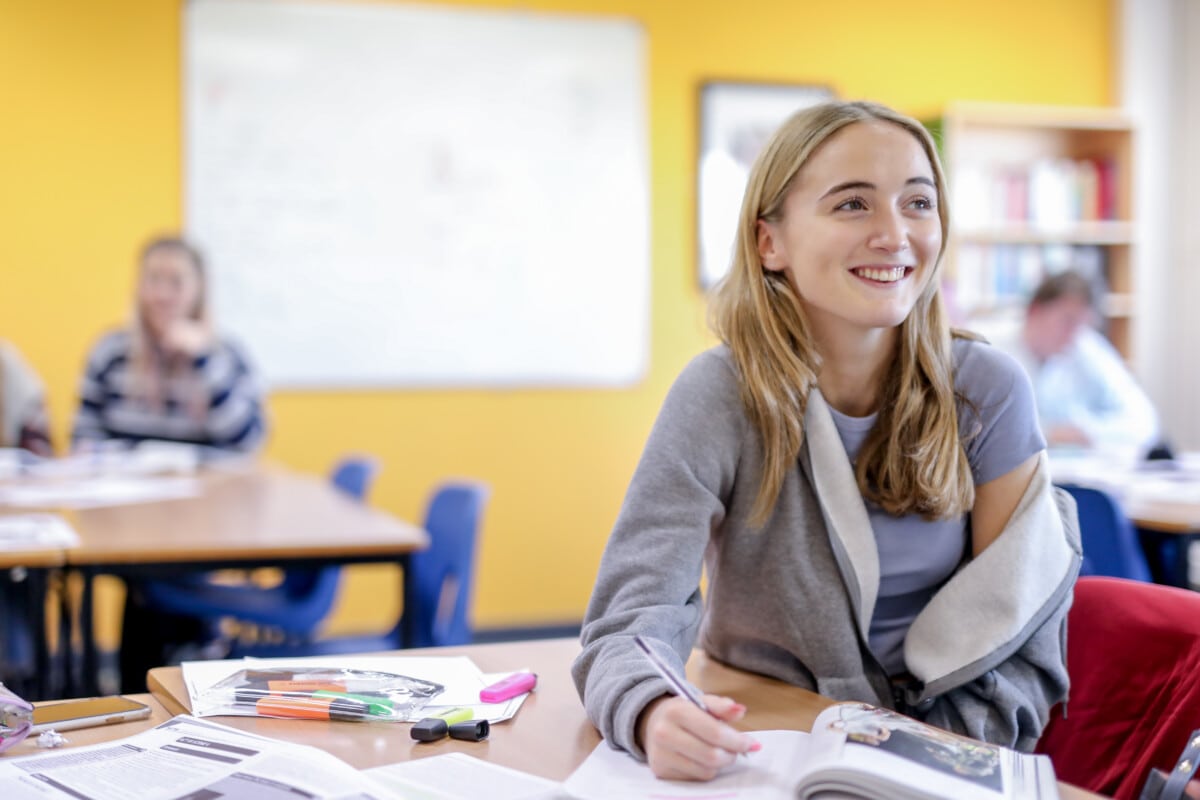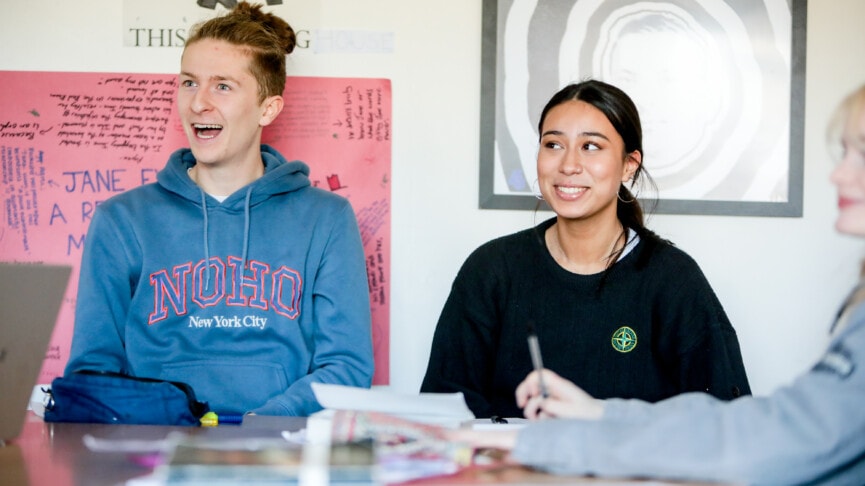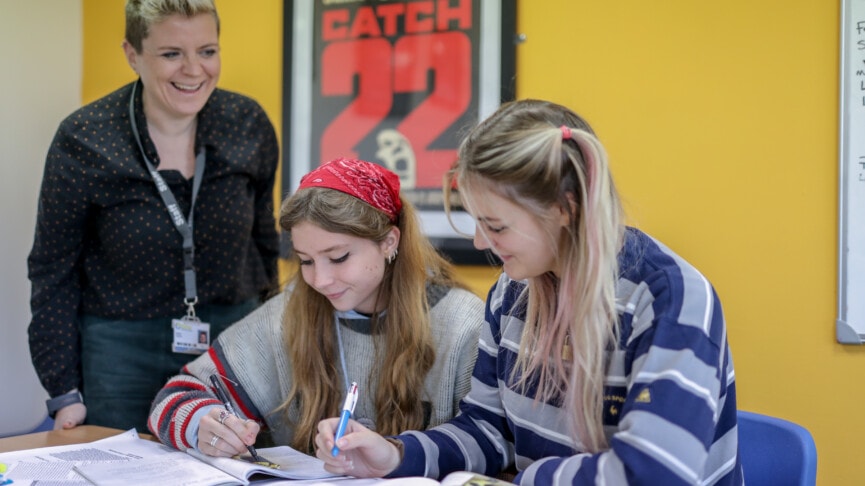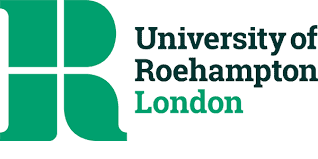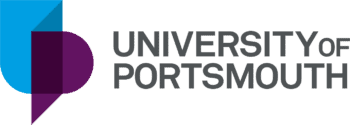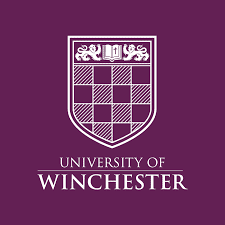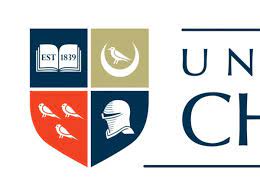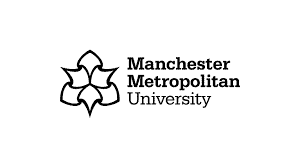Overview
In English Language we study the full range of ways that language is used to communicate out there in the ‘real world’.
Everything can be considered a ‘text’ worth studying, and spoken language is as important as written language.
In a typical week, you might find yourself confronted with texts including newspaper columns, blogs, websites, recipes, problem pages, letters of complaint, autobiographies, birth certificates, a political speech, a stand-up comedy routine, transcripts of children speaking to each other, football match reports, text messages, romantic novels, adverts from the 1930s…almost anything!
It is this variety that makes English Language such a fascinating subject to study.
Entry Requirements
In addition to the general criteria that the college requires, you will need a minimum of:
• Grade 4 in GCSE English Literature
• Grade 4 in GCSE English Language
Course Details
Over the course of two years, you will study how children learn to speak and read, how texts are shaped by context, how speakers and writers use language to represent their identity as well as the differences between spoken and written language. You will also study the development of English from 1550 to the present day and the influence of technology on language. You will undertake an in-depth investigation into an area of language such as The Language of Charity Advertising or Broadcast Journalism. Finally, you will write coursework, which involves writing creatively in a genre of your choice.
Assessment
Assessment is by three written exam papers (worth 80% of the total mark) and coursework (worth 20% of the total mark), which is written in the second year.
Subject Combinations
English Language is a highly valued subject and combines well with a wide range of other subjects.
You can combine English Language with English Literature or if you are committed to studying English at University.
University Destinations
English Language A Level is a highly respected qualification, with 90% of our students progressing onto University.
Here are some typical University Destinations that our English Language A Level students go on to.
Click on a destination to see some examples of courses they have taken;
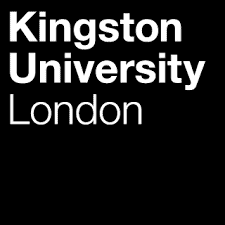
Kingston University
Typical courses: Business Management / Foundation Diploma in Art, Design and Media Practice / Drama and Theatre
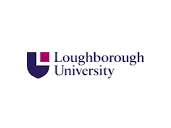
Loughborough University
Typical courses: Design (with placement year) / Sport Science, Coaching and Physical Education (with placement year)
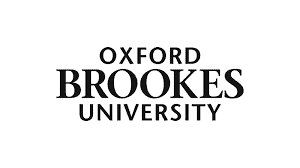
Oxford Brookes University
Typical courses: Media, Journalism and Publishing / Primary Teacher Education (Campus-based) / Physiotherapy

University of Sussex
Typical courses: English Language and Linguistics / Politics and International Relations
Careers
An English Language A Level can lead to a variety of degree courses. It attracts a lot of applicants for university as it combines the academic, creative and analytical skills which are so valued in many careers. The skills are transferable to a range of disciplines and careers, including Publishing, Journalism, Psychology, Law, Advertising and Marketing.
FAQs
What is the difference between the three English A Level courses?
They are all quite different from each other;
- English Literature – This is your traditional English A Level. You study plays, poetry, drama and then you discuss the issues within those texts in class and write essays about them. The range of text goes from the Romantics, Shakespeare, and then modern poetry and modern plays. There is a lot of reading on this course, and you will need to enjoy reading to do this course. It is a fascinating course that is really interesting and students who study it, love it.
- English Literature and Language – 70% of the course is English Literature where you will study poetry, a play, and novels. In addition there is a creative writing focus as well as some literary non-fiction books on this course.
- English Language – This course is the most different to the one you studied at English Language GCSE. Here you will study the history of English and how it has evolved over time, things like etymology (where words come from) and the influence of historical events on the English language. We also look at how children learn to speak and write, and the theories surrounding that. There is also a creative writing element here and please note, there are absolutely no plays or novels to study on this course. It is all non-fiction. All the examinations are unseen, so you won’t be given any text and instead you have to respond to the questions based on what you have learned on the course.
What extra support/enrichment activities are on offer?
There are subject tutorials available with our teachers and the department runs a weekly clinic to support students with a range of syllabus topics. We also have strong links with the Learning Support department, which offers specific help when needed on everything from technical skills, and planning essays to improving your reading skills.
We run courses in creative writing as a complementary study option in your first year, and also at the end of the year during Wider Skills Week. English Language is well represented on our Enrichment programme of talks and seminars, and we have frequent visits to the theatre, cinema and external conferences.
Our Learning Resource Centres offer extensive online resources that you can use in college or at home. To find out more visit Online Subscription Resources for English
What skills will I need and develop on this course?
By the end of the course English Language students will have developed an impressive array of transferable skills including critical analysis, structuring arguments, selecting evidence, debating theories and of course a thorough understanding of linguistic terminology.
What is the expectation of reading on each course?
As you would expect with an English A Level you will be doing a lot of reading.
There are no set texts for English Language but you will be reading a wide range of content, for example an extract from the 1600s or a transcript of children’s speeches, and taking them home to annotate and then bringing it back into class ready to discuss.
With English Literature, you need to read two novels in the second term, a play and a collection of poetry. The most successful students are the ones who will be reading beyond the syllabus.
With English Language and Literature you only read one novel instead of two, which is Jayne Eyre, by Charlotte Bronte.
